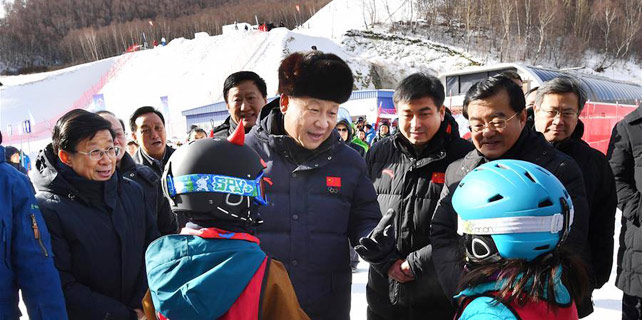Hershey 'to reduce payroll in China'
 |
|
Hershey's chocolates are displayed at a food exhibition in Changzhou, Jiangsu province. [Photo/China Daily] |
Hershey Co, the biggest chocolate maker in North America, will cut about 2,700 jobs from its global work force because of declining overseas sales, especially in China where its 2013 purchase of Shanghai Golden Monkey (SGM) has turned out to be more of a problem than a business builder.
The company said on Tuesday that the implementation of its "Margin for Growth" program will reduce its global workforce of about 18,000 by approximately 15 percent, primarily in its hourly headcount outside of the US. Hershey didn't specify where the job cuts would occur.
JP Morgan analyst Ken Goldman said he believed many would come from SGM, the Associated Press reported. Hershey CEO Michele Buck said the China business would undergo a transformation over the next three years, according to Reuters.
The layoffs are part of a plan to help its international businesses "return to profitability as soon as possible" and to boost profits, Buck said.
In its fourth-quarter report released last month Hershey said North American sales, which account for 85 percent of total sales, rose 3.2 percent, but sales in China declined 16.6 percent.
Hershey began an international expansion in 2013 with the purchase of a stake in SGM, which makes and distributes Golden Monkey candy, chocolates, protein-based products and snack foods in the Chinese mainland. Eventually Hershey acquired all of SGM.
In 2015, the Pennsylvania-based maker of Hershey's Kisses, Reese's Peanut Butter Cups, and Kit Kat and other products, cut its profit outlook and announced the elimination of 300 jobs due to slow sales growth in China.
David Mandel, a research analyst with Consumer Edge Research LLC, said Hershey may have taken on too much with the SGM purchase.
"They added thousands of employees and eventually SGM took down the company's international business," Mandel said in an interview. "I believe Hershey will now try to build its China business through an e-commerce approach."
Mandel said that could include working more closely with Alibaba's popular Tmall platform.
Hershey was optimistic about the SGM purchase and its expansion into other emerging markets like Brazil and India, hoping to increase revenue from the international business to 25 percent from 10 percent.
"They were hit by macro-economic problems and a slowdown in the emerging markets that really had nothing to do with Hershey," said Mandel.
Buck said Hershey will take $175 million in cost savings from the cutbacks to improve operating margins in its legacy brands and expand its offerings in the $100 billion US snack market.
The company also cut its long-term sales growth forecast to between 2 percent and 4 percent, from 3 percent to 5 percent.
Hershey faces challenges in the snack market as US consumers turn to healthier eating options and shop more online, which can reduce impulse buying at a store's checkout station. The company will also have to battle competitors such as Mondelez International, Pepsico and Mars.
Hershey rejected a $23 billion takeover offer from Mondelez last year.
















